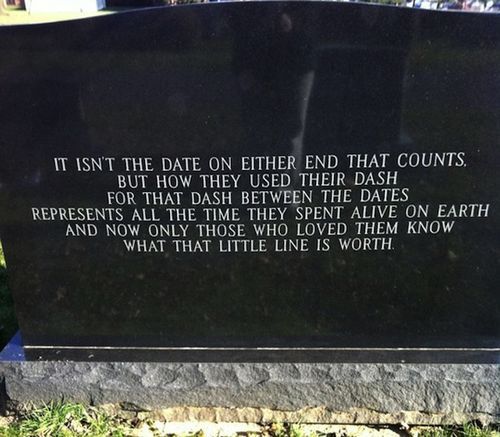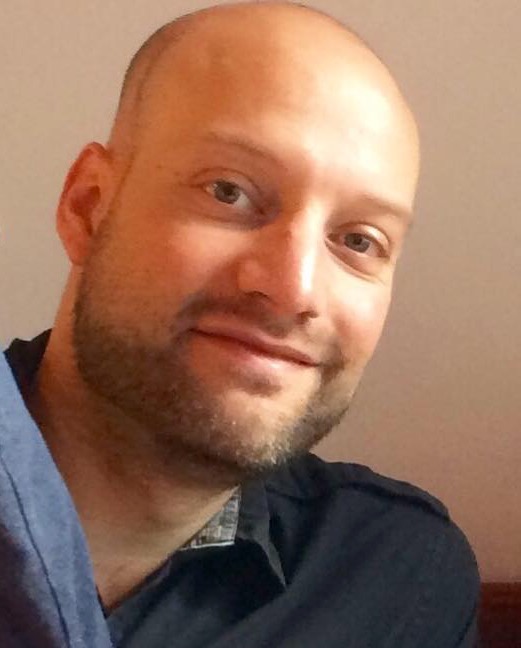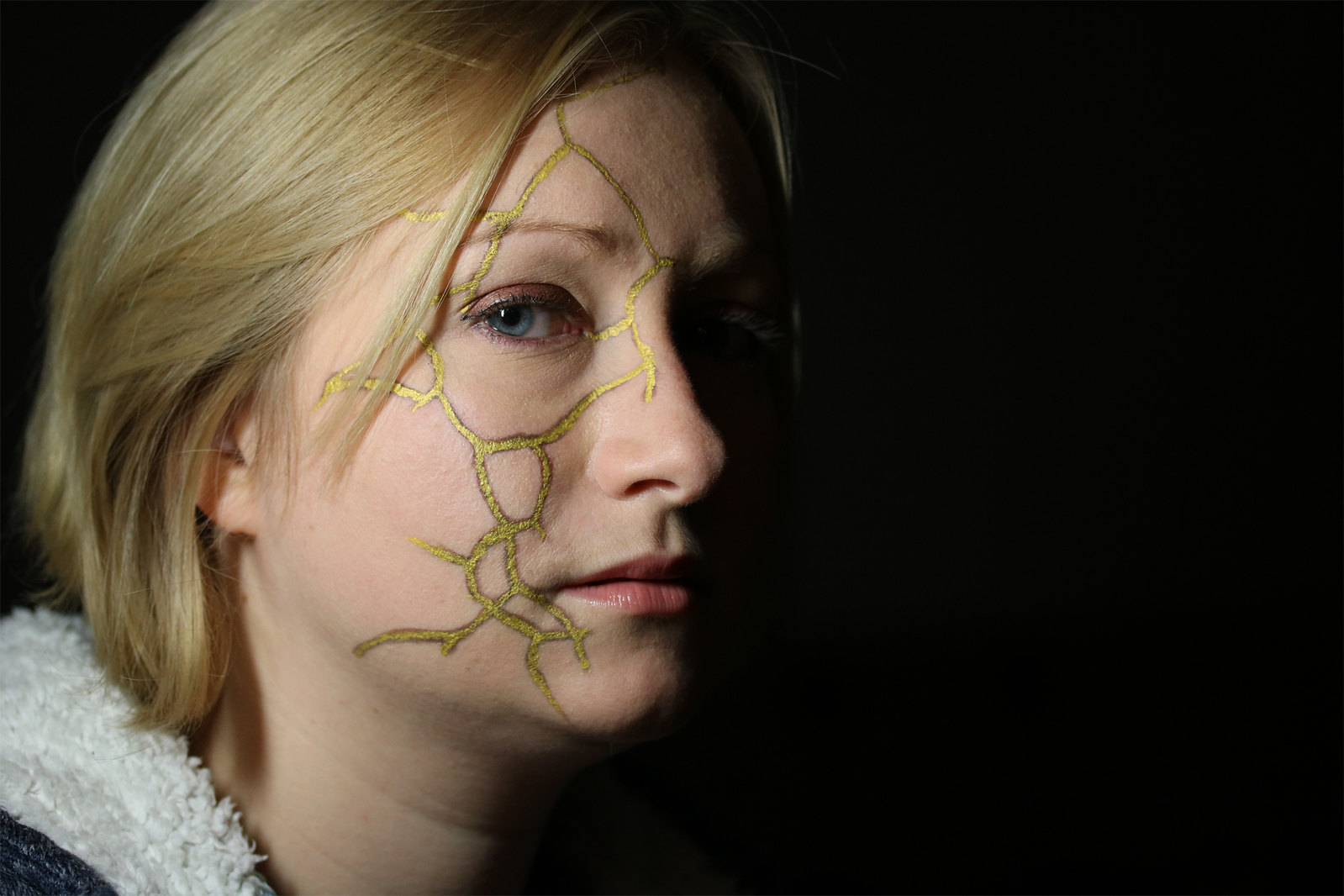My grieving started with this thought: "F**k, f**k, f**k" repeated again and again. Not very eloquent, I know, but that's what it was. Meant as a more extreme and sweary form of "no, no, no" I realised I had, understandably, got into a struggle with my feelings. When I let go of that struggle, the tension building in my chest eased a bit, which was a nice bonus. The first thing I did was seek the support of my husband. I cried a lot that first night. I also fell back on an old agenda of control and ate a lot of cake, though it was like ash in my mouth.
That night I was swamped with memories of my friend. I let myself experience them and cry as much as I needed but every time I felt myself going into denial I tried to drop the struggle. I tried to take a step back, getting into contact with the observing self and wondered why the mind bombards us with memories when we grieve. My guess (completely based on no science whatsoever) is that the mind is just trying to retrieve and show us all stored information about the person whom we have had an extremely distressed reaction about in an attempt to help us with the situation by providing all possible pertinent information. This can be excruciating, but imagining that my mind is doing it for a misguided reason along with getting into contact with the observing self took some of the sting out of it.
By the early hours of the morning I decided it was time to try and get some sleep, so I used the Defusion technique of leaves on a stream - every time a memory surfaced I placed it on a leaf to float away down the stream. This was quite intensive with the sheer amount of thoughts popping up but eventually the combination of Defusion and exhaustion managed to get me to sleep.
The next day I can only really describe as emotionally drowning. I carried on with my day as much as possible - I still had my toddler to look after, but the tv was doing a lot of babysitting that day. I had to ask for help to prepare food for myself because the moment I looked in the fridge to decide what meal to make I was simply repulsed by the idea of anything. I know from experience that when I'm in this state I will be able to force myself to eat if food is put in front of me and often feel somewhat better for doing so. I tried to ensure that I was willing to feel my feelings as much as possible and accept that this emotional storm had to take its course, taking heart that it would eventually pass.
The next days were filled with moments of normality, where I almost forgot my grief followed by gut punching sadness when it was remembered. I reached out to a friend and we both talked about our memories of Ross, what a great man he was and how he impacted both our lives. This conversation was incredibly helpful to me and even though it was painful at times, I felt a great sense of relief afterwards.
On the Friday and Saturday I felt a strange sense of disconnection - I was unable to cry and had a tense stress feeling in my stomach throughout the day. I didn't notice any psychological struggles going on, so as best as I could I tried to allow that feeling to be there. On the Saturday night I saw an older man walking past and angrily thought "why do you get to live to old age and Ross doesn't?" And with that thought the dam burst and I was able to cry again and the tension in my body eased. I'm not proud of that thought but at least it served a purpose in the progress of my grief.
I also wrote a tribute to my friend that week as a way of trying to express what he meant to me and to help me process what I was feeling. I intended only to publish it if I felt like it, safe in the knowledge that I could keep it to myself if I I wished to.
Time dilation
One thing I noticed in the first week of grieving was that time seemed to go a lot slower than normal. My parents-in-law had been staying the weekend the news broke and were to come back the next weekend, leaving Monday night and returning Thursday night. My mother-in-law commented that they were coming back so soon that it would feel like they never left. Usually, that would be the case, but I noticed this time that I felt like those three days were a solid week in length. I also met a friend on the Wednesday and the time between then and the following Monday when I saw him again at the funeral felt like at least two weeks. My days weren't particularly different from before so I can only assume that it was the grief that changed my perception of time passing.
Music
I've been listening to music a lot more than usual, especially when I'm in the car. I have chosen music that I find uplifting but that doesn't have such levity that it conflicts with my emotional state. I've avoided any melancholy songs which might further lower my mood. I was concerned at first that I was using music as a distraction to help me avoid my emotions but discovered that listening to music was actually helping me to open up to my feelings. In the quiet state I achieved while driving and listening, I found myself able to connect with how I was feeling in that moment. This became the most likely point I would be able to cry (not advisable while driving) other than the quiet time before falling asleep.
Sleep
Though I've managed to get myself to sleep ok most nights by using the leaves on the stream mindfulness exercise I've found the quality of my sleep has been quite bad. Lots of dreaming and restlessness. Unfortunately this sets me up for a poor start the next day and compounds the misery a bit but I think it will settle back to normal soon. Doesn't help that my toddler has a cold and wakes me 3-5 times a night too.
Discovering values
I have realised that these kind of life events can be an excellent opportunity to discover some values which had previously eluded us. Any regrets that arise about the person you have lost may indicate a value that you weren't following. See if you can work out any hidden values and then think how you can apply them to your future actions with others. It is too late to change your interactions with the person you lost but let their last gift to you be guidance for your future.
Two weeks on
Now I am more or less getting back to normal. I still get on average 2-3 moments of sadness each day but they are gradually decreasing in frequency and length. I try to make sure that I am willing to feel these as much as possible. My mind surprised me by on several occasions trying to convince me that I was mistaken and my friend was just still on sick leave. Thanks mind but that's not true.
The effectiveness of ACT
What has really bowled me over the last few weeks is how much the various ACT skills have helped me cope with this grief. My previous loss, 4 years before I started using ACT, made me very ill for a long time. The skill I found most essential for my grief was being willing to feel my emotions and drop the struggle with them. When we struggle with our feelings of grief and try to deny them and push them away we can cause ourselves a great deal of suffering. This kind of sadness can be frightening but opening yourself up to it means that you need only experience the original pain and not the additional pain brought on by pushing those feelings away.
Defusion was another very helpful skill - when my thoughts were pulling me in too deep it was useful to be able to defuse from them.
I also often used the observing self as a safe space to view my experience from.
Contacting the present moment was essential to help me drop anchor in my emotional storm - I tended to use mindfulness of the breath and notice 5 things to do this.
In my view, how well I have been able to cope with this grief, especially considering I am not even on antidepressants right now, is a testament to how amazing the ACT approach is. More than ever, I am sure of the value and potency of ACT and am greatly motivated to continue practicing it in my own life and teaching it to others.



